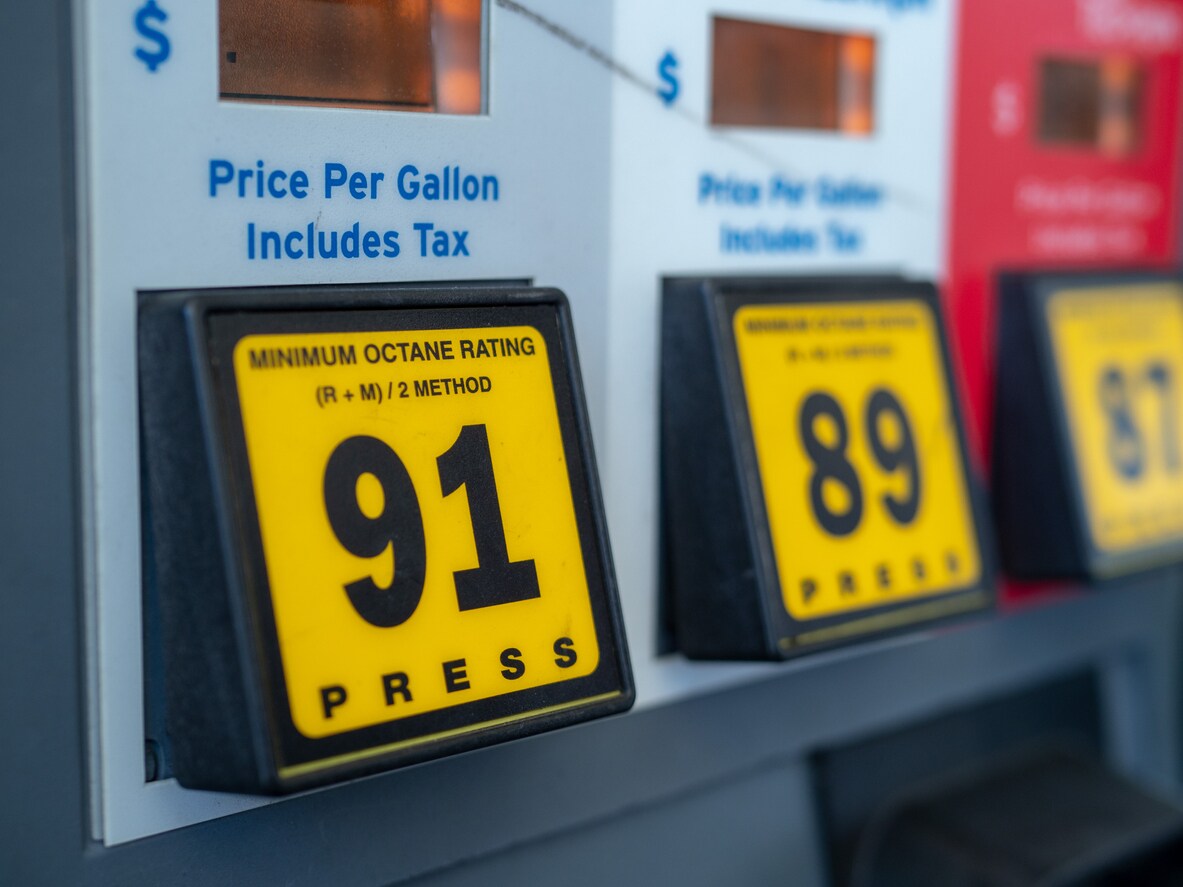
Fuel octane rating is the standard measurement of the fuel's ability to withstand compression in the internal combustion engine without prematurely detonating. In the U.S., most unleaded gasoline has octane ratings of 91-94 (premium), 87 (regular), and 88-90 (mid-grade). If you live in high elevated areas like Colorado, you might have noticed that gasoline with an octane rating of 85 and above is most common. The gasoline octane ratings are usually displayed in bold letters on the gas station pumps.
Which Octane-Rated Gasoline Does Your Vehicle Need?
Determining octane-rated gasoline that best fits your vehicle can be daunting. Although using high octane-rated gasoline may save you from higher maintenance costs and extend the life of your vehicle's engine, most experts recommend that you should follow the directions set forth by your vehicle's manufacturer.
If your vehicle's manual specifies that your vehicle runs on 87 octane fuel or any other, it would be prudent to stick to this standard unleaded gasoline. Most manufacturers only recommend higher octane fuel for vehicles with a higher compression ratio or those that use a supercharger or turbocharger to force air into the engine. The air forced into the engine increases the pressure in the engine, enabling the fuel to detonate at the right moment to maximize the speed and mechanical energy of the vehicle.
Does "Treating" a Vehicle Boost Performance or Fuel Economy?
Most drivers believe high octane-rated fuel helps a vehicle run longer or better. This assumption may be valid but fallacious to some extent. The answer to this question entirely depends on your vehicle. Indeed, a higher octane-rated fuel only boosts performance for vehicles designed to run on regular gas.
For most vehicles, higher octane fuel can improve fuel economy over time. If your vehicle engages much in heavy-duty use, higher octane fuel can significantly reduce the amount of carbon dioxide emitted. However, you may not notice any measurable improvement if your vehicle operates under regular working conditions. It would even be more expensive because the cost of producing higher octane fuel is high, making its price significantly higher.
What Can Happen if I Use a Lower Octane Fuel Than Required By My Vehicle?
Lower octane-rated fuel, specifically 85-octane, is recommended for high elevated areas. The barometric pressures of these regions are significantly lower, resulting in lower combustion temperatures. This fuel can also be tolerated by vehicle engines that use carburetors. For most modern vehicles, this gasoline can make the engine run poorly and likely damage the entire engine's emissions control system when used for a long time.
Unlike some newer vehicles, which can adjust the spark timing to reduce engine knock, the older engines may not. The older vehicles are likely to produce an audible "pinging" or "knocking" sound when fueled with lower octane-rated gasoline. Using this type of fuel against the manufacturer's recommendation might also void your vehicle warranty and other associated benefits.
Can Higher Octane Fuel Help Clean My Vehicle's Engine?
Most drivers subscribe to this assumption, but manufacturers deem it a myth. Higher octane fuel cannot clean your engine but can have better additives than lower octane gasoline. The additives may reduce carbon dioxide emissions when your vehicle performs heavy duties, especially in hot weather. In turn, reduced emissions help keep the engine and exhaust system cleaner, maintaining it for longer in terms of performance.
Fuel Octane Rating Made Simple
Although choosing a suitable octane rating may seem difficult, it is not worth it. As long as you stick to the recommendations specified by your manufacturer, your engine will continue running efficiently. Most new engines are adjusted for premature explosions to produce expected mechanical power by adjusting spark timing.
For a selection of fuel products and other automotive information and services that can help keep your vehicle efficient and effective, visit a car dealership in Bradenton today. Our dealership is full of Cadillac experts to guarantee you quality service. Don't hesitate to contact us on 941-751-6886 or visit us at 4780 14th St. Monday - Saturday.
